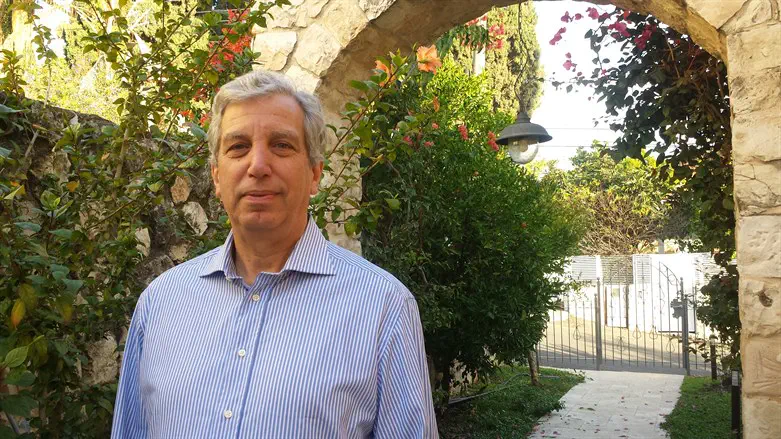
The list includes actions seemingly small, yet also surprisingly significant. That is because small gestures, innocuous enough, often take on a life of their own; at some point down the road, we suddenly turn around to realize the magnitude of all these incremental small gestures.
And then it might be too late to walk them back.
For example, we have put into play the appropriateness of playing our national anthem, The Hatikvah. This is most prevalent at various campus events and ceremonies, where the feeling is that playing the national anthem might be hurtful or offensive to some of the listeners.
Forget the fact that not playing Hatikvah might be equally offensive to even more attendees. We are supposed to be sensitive, and not be provocative. But isn’t it fair to wonder where else offense might be taken? Might the non-playing of the National Anthem become the proverbial loose thread on a cheap polyester suit? In other words, once you start pulling it, the whole garment could unravel.
Displaying, and even worse, carrying the flag has also become a hot button issue. Last June, there was tremendous anxiety about carrying flags through the center of Jerusalem, as it would be a provocation. Well, yes, it might be, just as our walking through the center of town might be for some as well.
Do we stop? Is it fair to wonder whether the so-called provocative act is really a test of our own resolve to adhere to those attributes of our society that define our sovereignty?
When the Jerusalem Day Parade was ultimately resumed, nothing happened. There was no riot, there was no rocket attack. There was merely a show of resolve.
“Resolve” is the key word here. In a Rorschach world of perceptions, one person’s provocation might be the other’s show of resolve and determination.
In our geo-political neighborhood, resolve counts for a lot because it means strength and the willingness to act on our strength.
Undoubtedly, the greatest failure of resolve, the ultimate bow to provocation, with terrible results, has been in Israel’s handling of the Temple Mount. Moshe Dayan’s ill-conceived sense that he did not want to be engaged with another Vatican, as he put it, completely missed the point of why Israel needed to assert its sovereignty on the Temple Mount, rather than cower before the Jordanians and the Waqf.
Palestinians, Arab Israelis and Jordanians all know that the Temple Mount is the most holy site in all of Judaism - the site of the Temple of Solomon, as their own literature makes clear. Denying us the ability to ascend to the Mount in any fashion other than as dhimmi-like supplicants, is a great victory for them and a prooftext for the superiority of Islam over Judaism.
Every concession to Muslim sensibilities has been a building block for more demands and shriller insistence that any Jewish presence on the Mount is an attempt to “Judaize” what they regard as theirs and theirs alone.
Does it not occur to us that in the minds of our adversaries, if we are willing to give up our most holy site, everything else can be pried away from us as well?
Being reasonable, making rational concessions, not pushing the envelope on exercising our control in a situation all have larger implications than just the matter at hand. They are seen as signs of weakness, and weakness is meant to be exploited.
I think there is analogy to be made on the issue of not bowing to fears of provocation with the handling of the Covid pandemic. Our leaders put rules, regulations and standards into effect that were meant to be applied across the board.
The instances when high visibility figures decided that the rules could be bent for them, or did not apply to them, were met with universal condemnation. We were all impinged, inconvenienced.
Letting a rule slide – the Covid equivalent of bowing to fears of provocation – proved to be completely counterproductive.
Lastly, I would argue that our being provocative – meaning staying true to the values and attributes of who we are as a sovereign Jewish State serves not only our vital interest, but those of the world at large.
If you believe, as I do, that Israel is a force for good in the world, as a partner and an exemplar of how to maintain a just and humane society despite pressures from within and threats from without, then we owe something to the larger world; this is the world that, whether they would admit or not, looks up to us, and wants us to be true to ourselves.
What we all, Israelis and its friends around the world, should want to see is an Israel that is faithful to itself; that we show the world how much we value and revere who we are, what defines us a nation and stay true to those values.
Doing so will win the grudging acceptance of our adversaries, the admiration of our friends and the clear understanding of our own citizens that we are unapologetically proud to be who we are, no provocations intended, and no questions asked.
Douglas Altabef is Chairman of the Board of Im Tirtzu, Israel’s largest grassroots Zionist organization, and a Director of the Israel Independence Fund. He can be reached at dougaltabef@gmail.com.